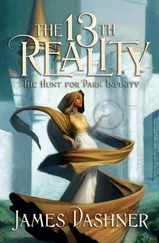Fine, it will be as you say. But this will be the first political meeting I have missed in years." "From what your file says, you could teach Party doctrine to the Politburo, Yevgeni Konstantinovich." Which said little about his medical ability, Ramius thought. The captain moved forward to the wardroom to join his brother officers, who were waiting for him. A steward had left several pots of tea along with black bread and butter to snack on. Ramius looked at the corner of the table. The bloodstains had long since been wiped away, but he could remember exactly what it looked like. This, he reflected, was one difference between himself and the man he had murdered. Ramius had a conscience. Before taking his seat, he turned to lock the door behind him. His officers were all sitting at attention, since the compartment was not large enough for them to stand once the bench seats were folded down. Sunday was the normal day for the political awareness session at sea. Ordinarily Putin would have officiated, reading some Pravda editorials, followed by selected quotations from the works of Lenin and a discussion of the lessons to be learned from the readings. It is very much like a church service. With the demise of the zampolit this duty devolved upon the commanding officer, but Ramius doubted that regulations anticipated the sort of discussion on today's agenda. Each officer in this room was a member of his conspiracy. Ramius outlined their plans - there had been some minor changes which he had not mentioned to anyone. Then he told them about the letter. "So, there is no going back," Borodin observed. "We have all agreed upon our course of action. Now we are committed to it." Their reactions to his words were just what he expected them to be - sober. As well they might be. All were single; no one left behind a wife or children. All were Party members in good standing, their dues paid up to the end of the year, their Party cards right where they were supposed to be, "next to their hearts." And each one shared with his comrades a deep-seated dissatisfaction with, in some cases a hatred of, the Soviet government. The planning had begun soon after the death of his Natalia. The rage he had almost unknowingly suppressed throughout his life had burst forth with a violence and passion that he had struggled to contain. A lifetime of self-control had enabled him to conceal it, and a lifetime of naval training had enabled him to choose a purpose worthy of it. Ramius had not yet begun school when he first heard tales from other children about what his father Aleksandr had done in Lithuania in 1940 and after that country's dubious liberation from the Germans in 1944. These were the repeated whisperings of their parents. One little girl told Marko a story that he recounted to Aleksandr, and to the boy's uncomprehending horror her father vanished. For his unwitting mistake Marko was branded an informer. Stung by the name he was given for committing a crime - which the State taught was not a crime at all - whose enormity never stopped pulling at his conscience, he never informed again. In the formative years of his life, while the elder Ramius ruled the Lithuanian Party Central Committee in Vilnius, the motherless boy was raised by his paternal grandmother, common practice in a country savaged by four years of brutal war. Her only son left home at an early age to join Lenin's Red Guards, and while he was away she kept to the old ways, going to mass every day until 1940 and never forgetting the religious education that had been passed on to her. Ramius remembered her as a silver-haired old woman who told wonderful bedtime stories. Religious stories. It would have been far too dangerous for her to bring Marko to the religious ceremonies that had never been entirely stamped out, but she did manage to have him baptized a Roman Catholic soon after his father had deposited him with her. She never told Marko about this. The risk would have been too great. Roman Catholicism had been brutally suppressed in the Baltic states. It was a religion, and as he grew older Marko learned that Marxism-Leninism was a jealous god, tolerating no competing loyalties. Grandmother Hilda told him night time stories from the Bible, each with a lesson of right and wrong, virtue and reward. As a child he found them merely entertaining, but he never told his father about them because even then he knew that Aleksandr would object. After the elder Ramius again resumed control of his son's life, this religious education faded into Marko's memory, neither fully remembered nor fully forgotten. As a boy, Ramius sensed more than thought that Soviet Communism ignored a basic human need. In his teens, his misgivings began to take a coherent shape. The Good of the People was a laudable enough goal, but in denying a man's soul, an enduring part of his being, Marxism stripped away the foundation of human dignity and individual value. It also cast aside the objective measure of justice and ethics which, he decided, was the principal legacy of religion to civilized life. From earliest adulthood on, Marko had his own idea about right and wrong, an idea he did not share with the State. It gave him a means of gauging his actions and those of others. It was something he was careful to conceal. It served as an anchor for his soul and, like an anchor, it was hidden far below the visible surface. Even as the boy was grappling with his first doubts about his country, no one could have suspected it. Like all Soviet children, Ramius joined the Little Octobrists, then the Young Pioneers. He paraded at the requisite battle shrines in polished boots and blood-red scarf, and gravely stood watch over the remains of some unknown soldier while clasping to his chest a deactivated PPSh submachinegun, his back ramrod straight before the eternal flame. The solemnity of such duty was no accident. As a boy Marko was certain that the brave men whose graves he guarded so intensely had met their fates with the same sort of selfless heroism that he saw portrayed in endless war movies at the local cinema. They had fought the hated Germans to protect the women and children and old people behind the lines. And like a nobleman's son of an earlier Russia, he took special pride in being the son of a Party chieftain. The Party, he heard a hundred times before he was five, was the Soul of the People; the unity of Party, People, and Nation was the holy trinity of the Soviet Union, albeit with one segment more important than the others. His father fit easily into the cinematic image of a Party apparatchik. Stern but fair, to Marko he was a frequently absent, gruffly kind man who brought his son what presents he could and saw to it that he had all the advantages the son of a Party secretary was entitled to. Although outwardly he was the model Soviet child, inwardly he wondered why what he learned from his father and in school conflicted with the other lessons of his youth. Why did some parents refuse to let their children play with him? Why when he passed them did his classmates whisper "stukach," the cruel and bitter epithet of informer? His father and the Party taught that informing was an act of patriotism, but for having done it once he was shunned. He resented the taunts of his boyhood peers, but he never once complained to his father, knowing that this would be an evil thing to do. Something was very wrong - but what? He decided that he had to find the answers for himself. By choice Marko became individual in his thinking, and so unknowingly committed the gravest sin in the Communist pantheon. Outwardly the model of a Party member's son, he played the game carefully and according to all the rules. He did his duty for all Party organizations, and was always the first to volunteer for the menial tasks allotted to children aspiring to Party membership, which he knew was the only path to success or even comfort in the Soviet Union. He became good at sports.
Читать дальше











